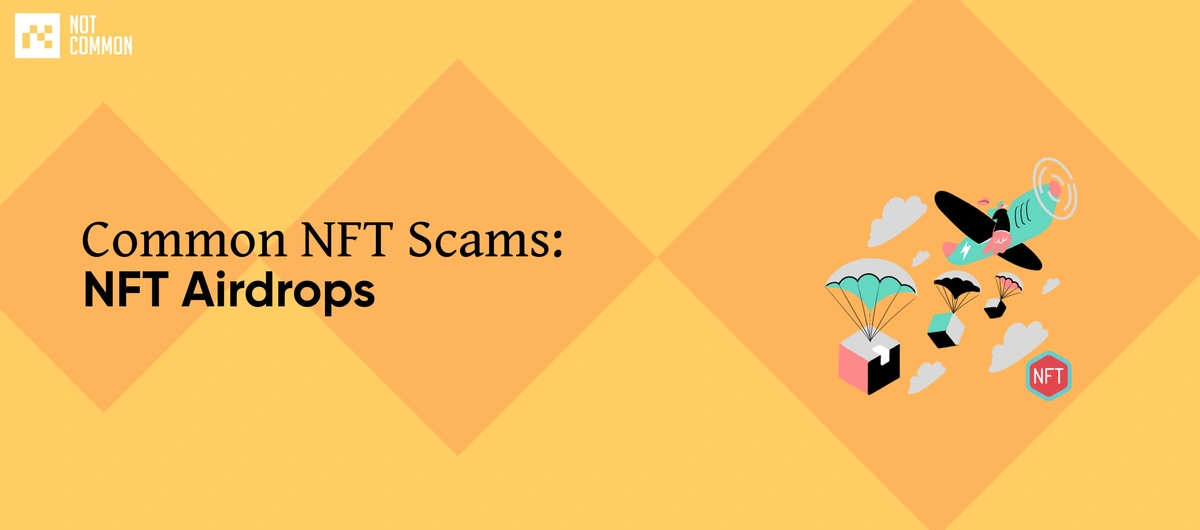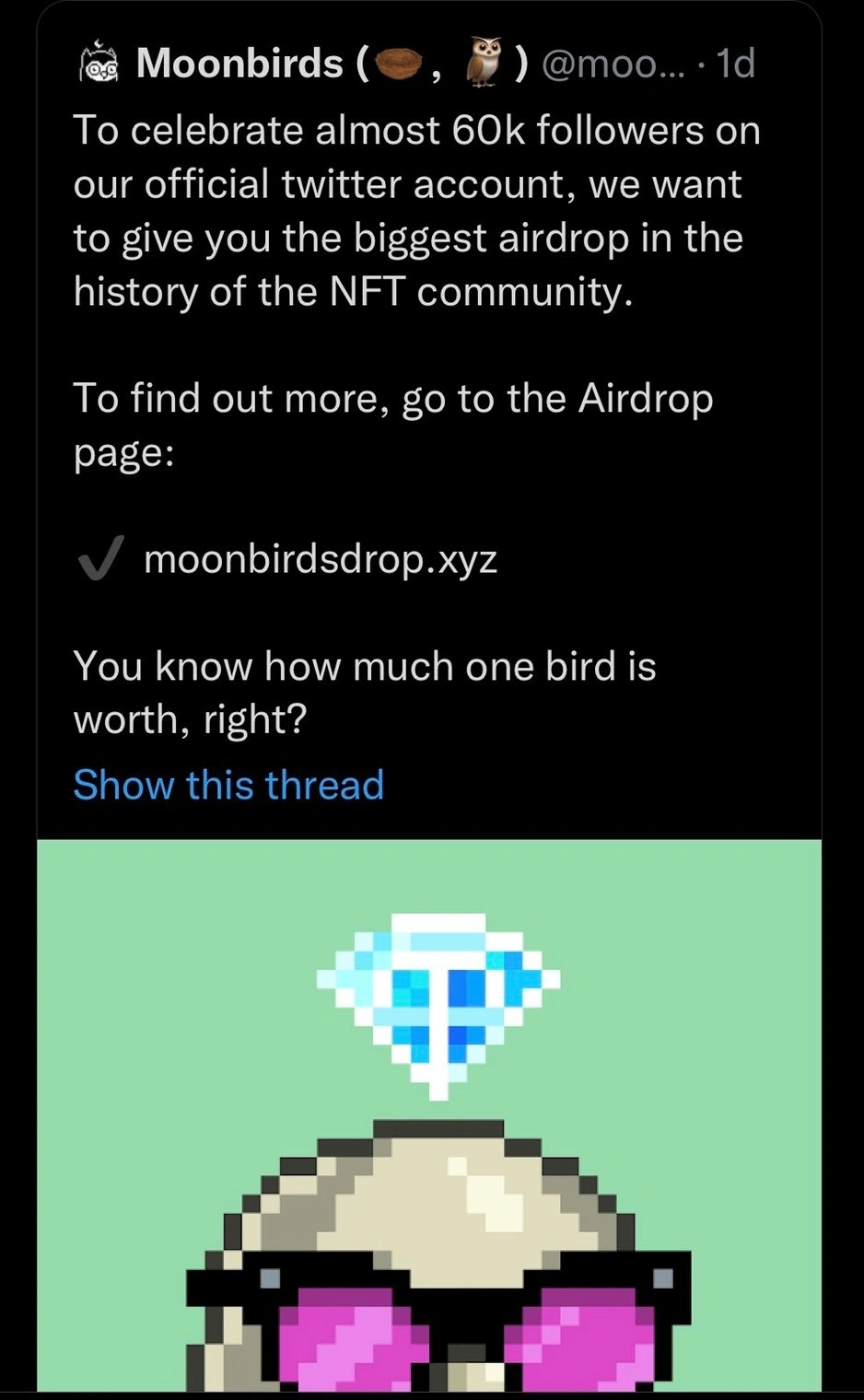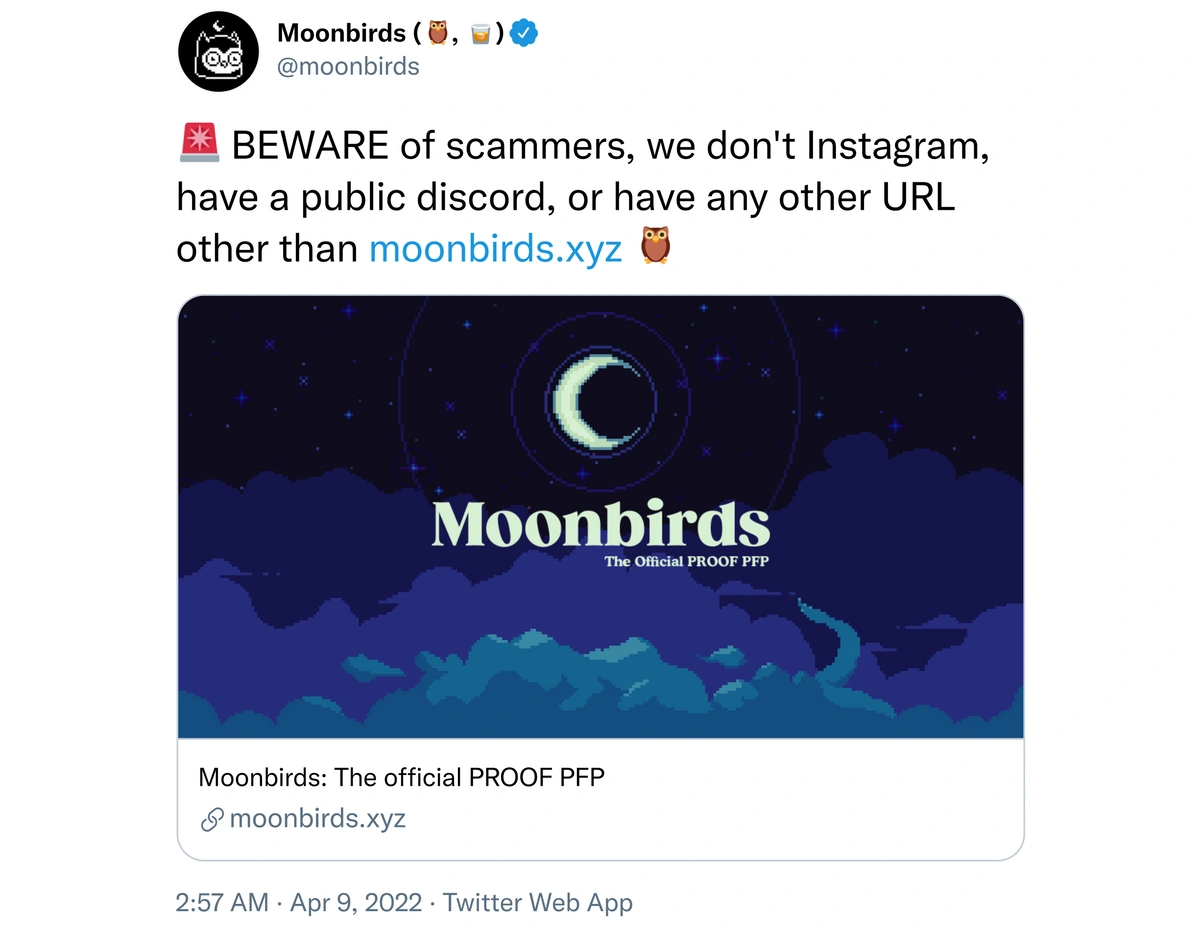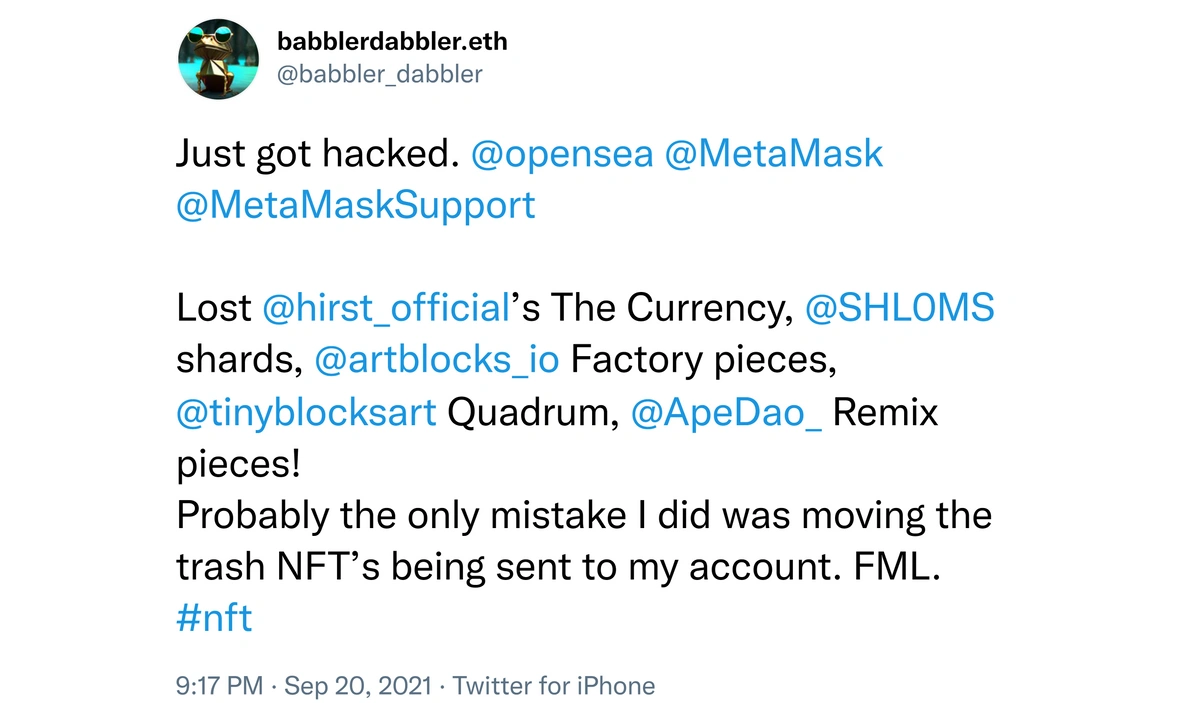NFTs have received lot's of attention from investors and scammers due to their widespread popularity. The prevalence of scams, hacks and phishing emails that target NFT marketplaces like OpenSea and Rarible is creating many problems for the entire NFT community. Scammers are now targeting NFT collectors and investors on Twitter and Discord using a new scamming scheme: NFT airdrops.
NFT projects often market their new NFT collection through the free distribution of tokens or NFTs among NFT collectors. Such giveaways or airdrops contribute to the positive promotion of NFT projects. However, as per the latest Malwarebytes Labs report, scammers are now using this marketing technique for malicious gains. Malwarebytes Labs reports an alarming increase in airdrop phishing attempts as scammers try to capitalize on the interest in Yuga Labs' BAYC Ape-themed NFT collection.
While airdrops are a profitable way to earn NFTs, they pose many dangers to your wallet, as scammers may exploit an airdrop to steal your NFT assets. In the unlikely event that an unknown sender tries to deliver you an unexpected NFT, you should not try to claim the airdrop since it may potentially be a scam attempt.
This article explains the NFT airdrop scam and how it works. It also covers some strategies for avoiding the NFT airdrop scam.
What is an NFT Airdrop Scam?
NFT airdrops are marketing strategies that NFT projects use to reach NFT traders and collectors. NFT projects may reward NFT airdrops as no-strings-attached freebies to anybody who wants in on the NFT project early on. In most cases, early adopters of specific NFT projects or communities may receive an NFT airdrop as a reward for community membership. Such incentives are fantastic for maintaining people's emotional investment in their Web3 events.
Scammers may use NFT airdrops as part of a scamming strategy depending on the nature of the airdrop and how you receive it. If the early adopters have already put some effort into the NFT project, they may receive a free airdrop from the NFT collection. However, an airdrop may be a significant red flag if a fake airdrop requests money (for a freebie?) or, worse, your login details or recovery phrase.
The blue-chip NFT project Moonbirds soon took to Twitter. They warned NFT collectors of a potential NFT airdrop scam, stating they did not have another website (as mentioned in the picture below) besides their official website.
Airdrop Scam impersonating famous NFT project Moonbirds. (Source: Twitter)
Moonbirds NFT warned users of a potential NFT scam. (Source: Twitter)
How Do NFT Airdrop Scams Work?
The typical NFT airdrop (like the one in Moonbirds case) works such that scammers target phishing attacks on blue chip NFT projects and market such phishing sites as alleged “NFT airdrop” on Twitter or Discord.
If the scammers can convince NFT collectors or traders to click on the phishing site link and connect their NFT wallets to the fake MetaMask pop-up, they may lose all their NFTs. Once the scammers receive the NFT wallet login details, they transfer the NFTs from the victim’s wallet and drain it.
Second Type of NFT Airdrop Scam:
An NFT collector, "AJ," claimed to lose NFTs worth $50K due to an alleged "airdrop scam."
NFT collector and creator AJ lost NFTs due to an airdrop scam. (Source: Twitter)
In his tweet following the NFT airdrop scam, Aj claimed that the only way he might have lost his NFT collection was due to malicious token approvals relating to NFTs "airdropped" to his wallet address or free NFTs that he received from scammers. He did not interact with fake front end or other common NFT scams or enter his seed phrase anywhere.
Are all NFT Airdrops Scam?
No, all airdrops are not scams. An airdrop is the free release of an NFT or crypto token to multiple users' crypto wallets. New NFT projects often leverage airdrops to promote their collections and projects by rewarding many community members with tokens for their participation in the NFT project’s community. The recipients of airdrops are often the first to engage with the NFT project, and the NFT project gives out the NFT tokens as a kind of appreciation for their participation.
However, suppose you see an airdrop from a new NFT project on social media platforms such as Twitter or Discord. In that case, checking the project's authenticity is best before interacting with the airdrop link. Before participating in it yourself, please research what other NFT collectors say about the airdrop. Always verify the NFT projects giving out airdrops on various social media platforms.
According to Coinbase, if you receive an NFT airdrop that you weren't anticipating, please isolate your expensive NFTs in a separate NFT wallet, depending on their worth. However, you must understand that transferring your NFTs from one wallet to another may incur additional gas fees.
The Takeaway – How to Avoid NFT Airdrop Scam?
You must sign a transaction and link your wallet to a smart contract to receive an airdrop. Although it's possible to profit from airdrops, you should exercise caution due to the potential lack of security in the smart contracts you'll use to claim them. If a smart contract is built with a malicious purpose, this process might expose your wallet to multiple NFT scams leading to theft and loss of NFT assets.
It will help if you double-check the website URL to ensure the NFT airdrop redirects you to the legitimate website. Insider links should appear recognizable, so check the announcements channel before clicking.
Additionally, you should avoid clicking on strange links since this is the most frequent method for NFT collectors to get scammed. Never share your private keys or secret phrase with anyone, even if someone lures you to receive expensive NFTs through airdrops. Try to avoid NFT airdrops, as avoiding them may keep you secure from such scams. However, if you still want to accept an NFT airdrop, you should only receive airdrops from verified users that you completely trust.



